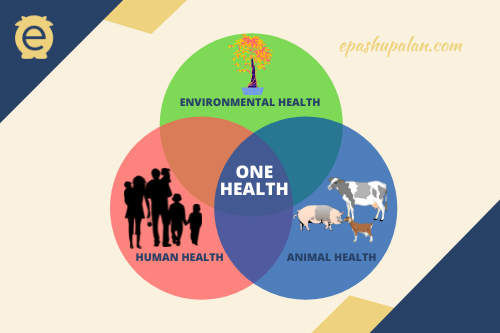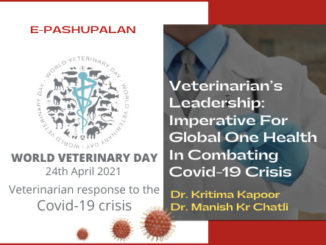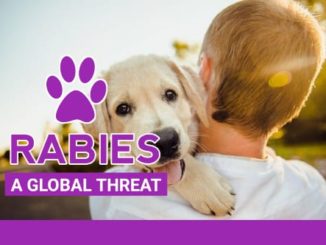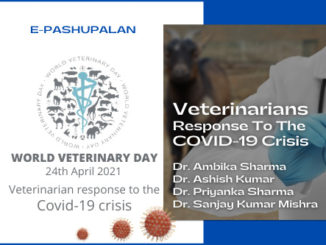One Health is an approach that recognizes that the health of people is closely connected to the health of animals and our shared environment. One Health is not new, but it has become more important in recent years. This is because many factors have changed interactions between people, animals, plants, and our environment. Human population is growing and expanding into new geographic areas. As a result, more people live in close contact with wild and domestic animals, both livestock and pets. Animals play an important role in our lives, whether for food, fiber, livelihoods, travel, sport, education, or companionship. Close contact with animals and their environments provides more opportunities for diseases to pass between animals and people. The earth has experienced changes in climate and land use, such as deforestation and intensive farming practices. Disruptions in environmental conditions and habitats can provide new opportunities for diseases to pass to animals. The movement of people, animals, and animal products has increased because of international travel and trade. As a result, diseases can spread quickly across borders and around the globe. These changes have led to the spread of existing or known (endemic) and new or emerging zoonotic diseases, which are diseases that can spread between animals and people.

One Health recognizes that the health of humans, animals and ecosystems are interconnected. One Health was initiated as a concept, was upgraded to an approach and is recently being considered as a movement. It involves application of a coordinated, collaborative, multi-disciplinary and cross-sectoral approach to address potential or existing risks that originate at the animal-human-ecosystems interface. It also encourages synergistic collaboration to achieve common public health goals. Therefore, exploring collaboration in One Health (including system resilience) is vital prior to implementing a countrywide One Health Collaboration (OHC) policies and strategies.
Studies indicate that more than two-thirds of existing and emerging infectious diseases are zoonotic, or can be transferred between animals and humans, and vice versa, when the pathogen in question originates in any life form but circumvents the species barrier. Another category of diseases, “anthropozoonotic” infections, gets transferred from humans to animals. The transboundary impact of viral outbreaks in recent years such as the Nipah virus, Ebola, Severe Acute Respiratory Syndrome (SARS), Middle East Respiratory Syndrome (MERS) and Avian Influenza has further reinforced the need for us to consistently document the linkages between the environment, animals, and human health.
To achieve targets under the ‘One Health’ vision, efforts are needed to address challenges pertaining to veterinary manpower shortages, the lack of information sharing between human and animal health institutions, and inadequate coordination on food safety at slaughter, distribution, and retail facilities. These issues can be remedied by consolidating existing infrastructure and creating mechanisms to operationalize ‘One Health’ at every stage down to the village level.
As One health is a multisectoral, interdisciplinary and collaborative approach to attain optimal health for Animal, environment and Humans. Interlinking the three sectors Animal Health, Human Health and wildlife that may create a workforce acting as taskforce in the future Pandemics. It will be a solution to the underrecognized economic burden of disease and health benefits in terms of Animal Health, Human Health and Wildlife. There is need to enhance collaborations in the areas of common interest focusing on Zoonotic Disease that will reduce the risk and improve public Health all over India which may ultimately lead to the economic growth of the country.
India being home to a large portion of the world’s livestock farmers, the absence of a policy framework that ratifies the ‘One Health’ approach in development and health policies is a major hurdle in eliminating poverty and poverty-related diseases. Now, as we battle yet another wave of a deadly zoonotic disease (COVID-19), awareness generation and increased investments toward meeting ‘One Health’ targets is the need of the hour.






Be the first to comment